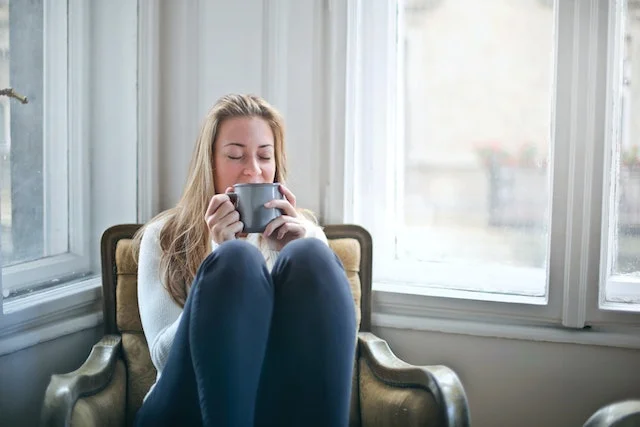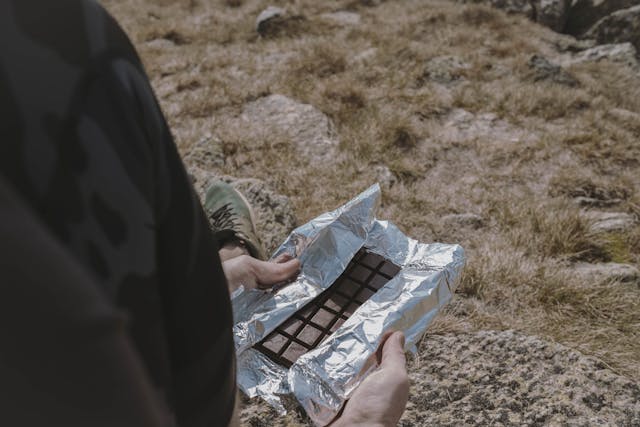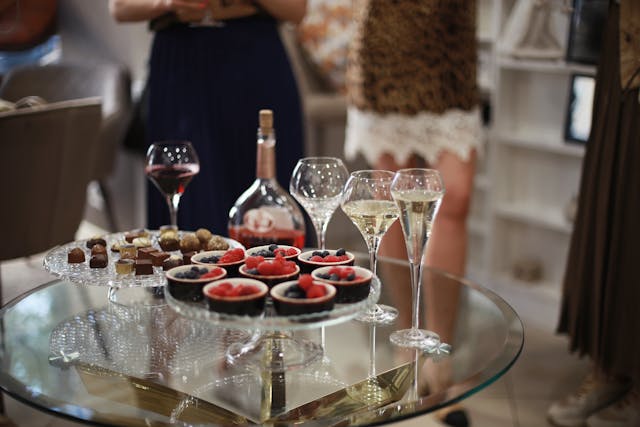
Benefits of Hot Cocoa for Your Health: Heart, Brain, Skin, and More
February 15, 2023
Brewed Cacao vs. Coffee: 8 Reasons to Drink Cacao Instead of Coffee
February 15, 2023Caffeine in Hot Chocolate vs. Coffee and Tea:
Which is Better for You?
Comparing the amount of caffeine in hot chocolate vs. coffee, tea, and other caffeinated beverages is not as simple as you may think. The caffeine content in these products varies a lot by type of bean or leaves used, origin of the plant, and processing techniques. This makes it hard to state single standard figures for each brew of caffeine-containing drink.
Read on to find out how much caffeine is in hot chocolate, and how it stacks up individually against different coffees and teas. You’ll also find out about when it is better to choose hot chocolate over coffee or tea, and vice versa.
Is Hot Chocolate High in Caffeine?
Like other products from cacao solids, regular hot chocolate has caffeine. However, the amount of caffeine in any particular hot chocolate depends on the shaved chocolate or cocoa powder mix used to brew the drink.
According to the USDA, that amount may range from as low as 0mg in Swiss Miss Hot Cocoa to as high as 5mg in 3 ½ oz homemade hot chocolate. Unfortunately, not all manufacturers label their product caffeine levels. Even at that, the amount of caffeine in hot chocolate is considered not as energizing as that you would get from other drinks.
So is hot chocolate high in caffeine? No. At least not as much as other caffeinated drinks. When listing caffeinated drinks, most publications list chocolate as a weak source and some don’t even list at all.
Caffeine in Hot Chocolate vs Coffee
Generally, coffee has more caffeine than hot chocolate. But that’s assuming the products are typical. Otherwise, there are decaffeinated coffees such as Nescafe Classic Decaf, that are considered a non-caffeine drink, and there are hot chocolates fortified to have as much as the caffeine in a cup of coffee.
Coffee is the world’s primary source of caffeine, with the Robusta varietal having about twice the caffeine in its Arabica counterpart. Depending on the type of coffee bean, grind, and brew technique, a shot or cup of caffeinated coffee can have anywhere from 5mg-200mg of caffeine.
Compared to the average hot chocolate mix, you’ll need to consume between 7-8 servings (7oz each) of hot cocoa to get the same amount of caffeine you would get from a cup of a typical drip coffee.
The typical amount of caffeine per serving of coffee is estimated to be:
Espresso coffees: 65mg-100mg of caffeine per shot (1oz)
Drip coffees: 80-135mg/7oz
Percolated coffees: 115- 175mg/7oz
Decaffeinated coffees: 0- 15mg/7oz
Coffees from espresso base (cappuccino, latte, macchiato, etc.): their caffeine content will be the same as that in the espresso base used
Caffeine in Hot Chocolate vs. Coffee: Which is Better for You?
Hot chocolate is a top winter drink for many people. They drink it for its warmth, flavour, and health benefits.
But if you’re looking to make a choice between hot chocolate and coffee on their caffeine difference, it will depend on whether you want a caffeine boost or you’re seeking alternatives to high caffeine shots.
If you need caffeine, coffee is the obvious choice, unless it is decaf. On the other hand, if you’re tapering off the amount of your caffeine consumption to avoid withdrawal symptoms a low caffeine hot chocolate makes a great fit.
READ: Why Replace Coffee with Cacao.
Hot Chocolate vs. Decaf Coffee
Decafs are still caffeinated coffees, only in negligible quantities, as low as 2-7mg per cup. Decaffeinated instant (soluble) coffees tend to have slightly less caffeine than insoluble decaffeinated coffees.
Hot chocolate or decaffeinated coffee caffeine content?
Most decafs have as much as 97%-99.9% of their caffeine stripped away. In a typical serving of either hot chocolate or decaf coffee, there may be no significant difference in terms of caffeine activity.
Decaffeinated coffee can be a better choice if you love the aroma from your cup of joe without the stimulating effect of caffeine. Whilst hot chocolate makes for a seamless transition from your decaf in wintry months.
Caffeine in Hot Chocolate vs. Tea
Tea is a popular drink and a great source of caffeine derived from the leaves of Camellia sinensis. Tea has more caffeine than hot chocolate, but less than coffee.
Although some sources tout significant differences in caffeine concentration between the four major tea types (based on level of oxidation), laboratory analyses prove that tea color does not indicate its caffeine concentration. White Chinese tea, for example, was found to have more caffeine than Assam black tea. Brew time, however, affects how much caffeine infuses into your serving.
According to a sample of 20 assorted commercial tea products, the caffeine concentration in a typical 6- 8oz serving ranges from:
Black, green, oolong, white tea: 14- 61 mg (concentration increases with steeping time)
Decaffeinated tea: <12mg
Herbal tea: No caffeine.
Technically, herbal teas are not teas since they’re not brewed from Camellia leaves.
If you’re replacing your tea with hot chocolate, you’d drink anywhere from 3 to 12 times your normal serving of tea for the same amount of caffeine. In case you’re leaving caffeine for good because of caffeine sensitivity, hot chocolate is not the perfect fit. It’s not any better than commercially decaffeinated tea. You might want to consider herbal teas that don’t have regular tea leaves added.
When You Might Prefer Hot Chocolate to Coffee or Tea
For many people, winter is a suitable time for more hot chocolate. It is considered a comfort food unlike coffee or tea that are often drunk for their central nervous system stimulant effects.
For other people, the choice might come down to health or religious reasons to abandon the psychoactive caffeine. Being low on caffeine, chocolate products are not really considered as caffeinated foods.
Hot chocolate is also a suitable choice if you’re cutting down chronic caffeine intake gradually to avoid experiencing withdrawal symptoms.
On a nutritional level: Hot chocolate contains more nutrients than coffee and tea. More flavanols, more proteins, more vitamins, more minerals. Hot chocolate also contains more calories than tea or coffee.
Product image of hot cocoa powder.
Caffeine in Hot Chocolate vs. Coffee vs. Tea: The Takeaway
The amount of caffeine in hot chocolate vs. coffee vs, tea isn’t standard as individual product concentrations depend on grind and brewing method. Without commercial caffeination or decaffeination, coffee has the highest caffeine concentration, followed by tea, then cacao and chocolate products. 400 mg of caffeine per day (not above 200mg per serving) is considered safe, which means you can safely consume any of these products if you’re not sensitive to caffeine. Health, religious, and nutritional factors may influence the choice of one drink over the other.
References
Types of teas https://teapeople.co.uk/types-of-tea
Caffeine content of brewed teas https://academic.oup.com/jat/article/32/8/702/829967
Coffee Types https://www.nescafe.com/in/coffee-types
Milk, chocolate beverage, hot cocoa, homemade https://fdc.nal.usda.gov/fdc-app.html#/food-details/171277/nutrients
Beverages, coffee, brewed, espresso, restaurant-prepared https://fdc.nal.usda.gov/fdc-app.html#/food-details/171891/nutrients
Caffeine in Drinks https://www.caffeineinformer.com/caffeine-content/tea-brewed
Chocolate vs Tea – In-Depth Nutrition Comparison https://foodstruct.com/compare/chocolate-vs-tea
Chocolate vs Coffee – In-Depth Nutrition Comparison https://foodstruct.com/compare/chocolate-vs-coffee
.
Chocolate Extinction: Fact vs. Fiction + What Chocolate Lovers Can Do
Chocolate ExtinctionFact vs. Fiction, What Consumers Can Do Share On Facebook Twitter Email Is the world really running out of chocolate? Not really. Currently the global […]
Corporate Chocolate Gifting Ideas to Appreciate Employees and Delight Clients
Corporate Chocolate GiftingHow to Appreciate Employees & Delight Clients Share On Facebook Twitter Email When it comes to corporate gifting, a one-gift-fits-all approach just doesn't cut […]
Cacao Supper Club at Home: Guide to Tasting Chocolate, Cacao Tea, and Pulp Juice
Cacao Supper Club at HomeGuide to Tasting Chocolate, Cacao Tea, and Pulp Juice Share On Facebook Twitter Email Imagine gathering around the table with a few […]





